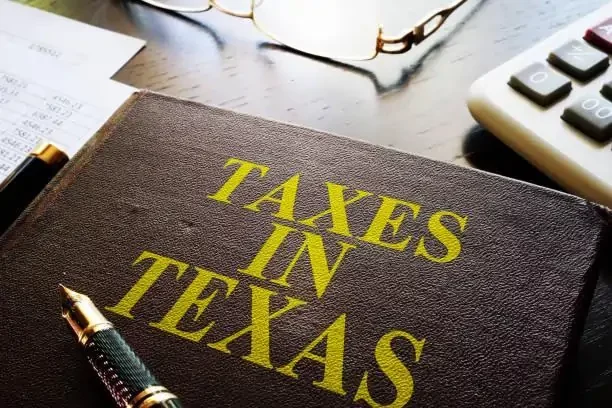
There aren’t too many things better than home ownership in Dallas County. That said, it does come at a price. The price of property tax, to be exact. Property taxes in Dallas County are the responsibility of all homeowners. They keep out schools and other essential programs fully funded and running. But for countless property owners, knowing how they’re calculated and determined can be confusing. As one of the largest tax bases in the state of Texas, your bill can be significant, especially with property values that continue to climb.
To help clear up the whole issue of property tax, and to help you keep your property safe from a lien or tax deed sale. We’ll cover how to look up your account online, as well as billing schedules that you should be aware of. By the end, you’ll be ready to stay on top of your tax obligations and avoid penalties with a little prep and drive.
Dallas County Property Tax Rates — What They Are and How Much You’ll Owe
Dallas County calculates property taxes based on the value of your home or land, as determined by the Dallas Central Appraisal District. The district is tasked with assigning each property an assessed value. That becomes the foundation upon which your tax bill is built.
Local taxing entities then apply their individual rates to that value. These entities are things like specific cities, a school district, and even the county itself.
In Dallas County, the county’s portion of the tax rate is $0.215500 per $100 worth of assessed value. This is a combination of a Maintenance & Operations rate of $0.208765 and an Interest & Sinking rate of $0.006735.
On top of this are rates levied by independent school districts, city governments, and other special taxing entities. For instance, within Dallas city limits, additional rates include the City of Dallas rate and the Dallas ISD rate.
Tax bills can feel overwhelming, but knowing how they’re calculated can take some of the stress out. It can also give you a substantial chance to prepare. Take a look at some Dallas homes similar to yours to get a better idea of local market values.
How to Search and Lookup Your Dallas County Property Tax
Dallas County property owners can access detailed tax information through the Dallas County Tax Office website and the Dallas Central Appraisal District’s online tools. You can search by name, address, or account number to retrieve your tax statement, view past payments, check delinquent balances, and see how exemptions affect your bill.
The records accessed through the county tax office are typically considered the primary source for homeowners to manage their taxes. They’re updated regularly and reflect not just the amount billed, but the payments collected. This level of transparency is crucial for responsible homeowners trying to avoid a surprise in October when they receive their tax statement.
When Are Dallas County Property Taxes Due & Billing Schedule
Each year, the Dallas County Tax Office mails property tax statements in October, giving homeowners several months to prepare. The official due date is January 31 of the following year. Any payments made after that date are considered delinquent and subject to penalties and interest.
Penalties begin at 6% in February and increase monthly, eventually reaching as much as 18% by July. In addition, delinquent taxes may lead to collection actions, fees, or even tax deed sales in extreme cases.
Staying on top of these dates is crucial for avoiding costly mistakes. Marking your calendar when bills are mailed and setting reminders for January deadlines can help. For a broader perspective on property tax deadlines elsewhere in Texas, or if you’re considering relocating, compare your property tax rates ahead of time.
How to Protest or Appeal Your Dallas County Property Tax Assessment
Sometimes, no matter how accurately the county believes they were when assessing your home, you believe they made a mistake. It happens. If you think your assessed property values are too high, you do have the right to appeal.
It’s called filing a protest, and you file it with the Dallas Central Appraisal District. Protests are generally due by mid-May, and property owners can use them to challenge assessment results. The challenge does require evidence, but this includes recent sales data, appraisal reports, or disclosure of issues affecting the property’s condition.
Once you file a protest, your case will be reviewed by the ARB, or the Appraisal Review Board. The ARB is an independent panel that hears arguments from both the homeowner and appraisal board before deciding on a case. If you are still unsatisfied, you can appeal to the district court as well.
Formally challenging an assessment can mean saving thousands, even tens of thousands, in tax overcharges over time, especially in areas like Grand Prairie. However, the deadlines and documentation requirements can be strict and unforgiving.
Where and How to Pay Dallas County Property Taxes
For residents of Dallas, Garland, Irving, or anywhere else inside Dallas County, homeowners pay their taxes with the Dallas County Tax Office. The DCTO offers a range of payment methods, so you can typically use whatever is most convenient. Homeowners can pay by mail, in person at tax office branch locations, or even online via e-check or bank card.
Many mortgage servicers include an escrow account. This means your lender is responsible for submitting tax payments on your behalf, on time, every year. That said, the property owner is ultimately responsible for ensuring the taxes are paid and following up if any issues are detected.
Failing to pay by the annual deadline, even by a single day, leads to delinquent status. Delinquent status immediately triggers additional costs and penalties. These penalties escalate monthly and can add a devastating percentage to your tax bill.
Managing Property Taxes: Owner Responsibilities, Penalties, and Relief Options
We’ve mentioned that there are serious penalties when property taxes are paid late, which is why it’s so important for homeowners to be proactive regarding their tax bill. Once the tax statement is issued, it’s the owner’s responsibility to make sure payments are submitted on time, even if a mortgage company manages an escrow account. Missing deadlines can quickly add up to costly penalties.
If you fail to pay by January 31, your account becomes delinquent. Starting in February, penalties and interest are applied, beginning at 6% and increasing monthly until they reach 18% by July. But that’s not the only cost, since collection fees can also be added, making the final balance much higher than the original bill ever was.
The good news is that Dallas County does offer tax relief options if tax burdens prove to be too much. Homeowners can apply for payment plans through the tax office or request one of many available exemptions. These are given based on eligibility criteria, including age, disability, veteran status, and more, under Texas law. Exemptions like the homestead exemption can help lower the total tax burden for residents of Mesquite or other nearby towns in Dallas County.

Special Cases: Exemptions, Homestead, Selling Your Home, and Fast Cash Sales
One of the most valuable benefits available to homeowners is the homestead exemption, which reduces the taxable value of a primary residence and lowers the overall bill. Additional exemptions may apply to seniors, people with disabilities, and veterans. These can significantly ease the tax burden for qualifying residents.
When it comes to selling your home, unpaid taxes remain attached to the property. This means taxes must be settled at or before closing to transfer clear ownership. Buyers and lenders typically require proof that taxes are current, and failure to pay can delay or block the sale.
For homeowners struggling with delinquent bills or facing foreclosure risk, selling directly to a cash buyer can be an efficient solution.
Resources & Next Steps
It’s ok if things feel a little overwhelming, taxes are a big deal. Remember, though, the Dallas County Tax Office provides a range of helpful tools designed to make the whole process easier. They provide lookups, various payment options, and even online printable paper forms, so everything is all in one place.
If you need a broader scope of guidance or if you need help with statewide tax rules, deadlines, or exemptions, head to the Texas Comptroller of Public Accounts.
Keeping state-level and county-level resources handy ensures you’ll always have the information you need.
Conclusion
Being as informed as possible about your property taxes is critical for protecting your home and building long-term financial stability. Not only knowing when your tax statement is due, but also knowing how it’s calculated in the first place. Being on top of things will help you avoid penalties and keep your deed in good standing.While there are exemptions, payment plans, and protest options available, sometimes paying just feels out of reach. If this is the case, and you’re considering selling, working with a local property solutions company might be ideal. Get a fast, stress-free solution, without the hassle of a traditional sale, by reaching out to Four19 Properties today.
